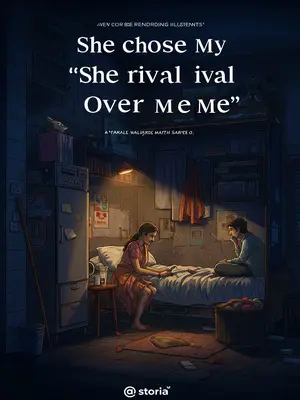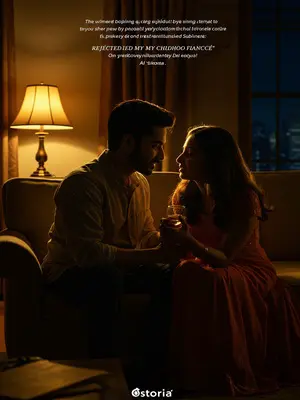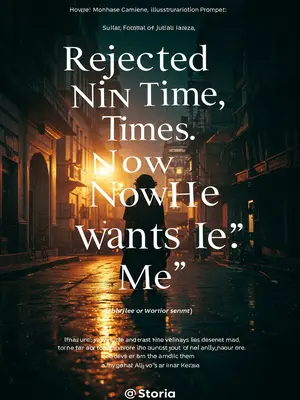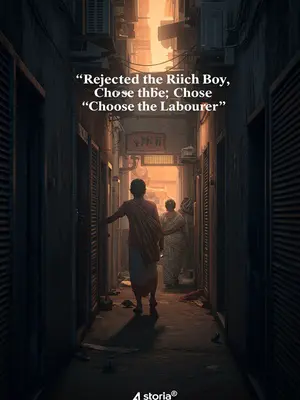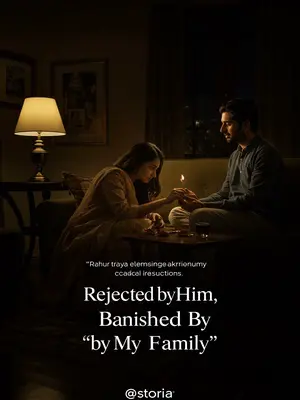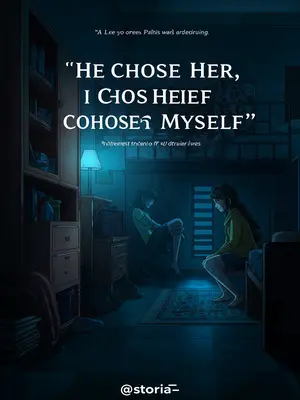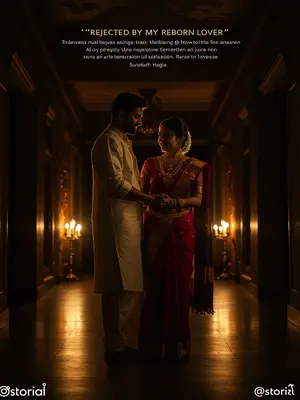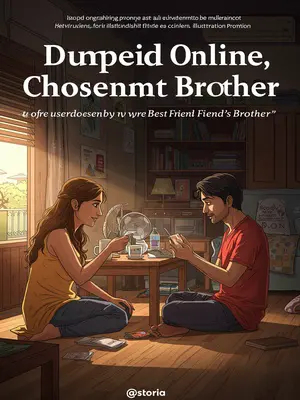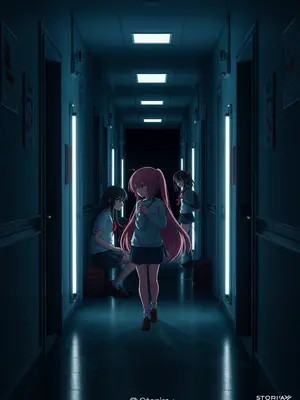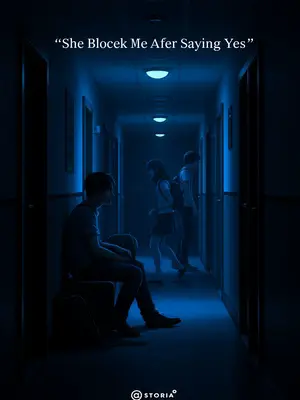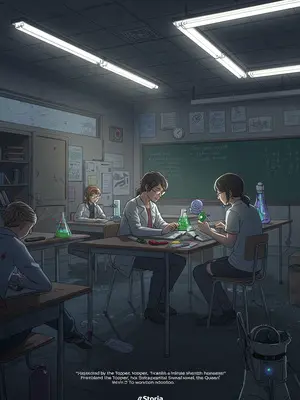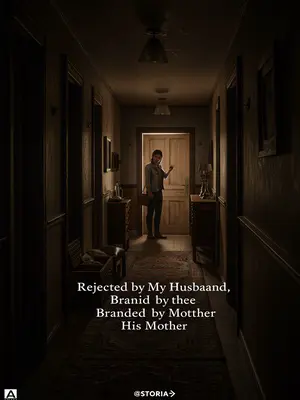Chapter 3: Family Ties
When I got home, my father was sitting at the door, a cheap cigarette hanging from his lips, his face full of worry.
Our verandah was bathed in the golden evening light. A stray dog dozed on the steps, and the faint sound of a bhajan floated from a neighbour’s radio. But his silhouette looked small, almost crumpled. The smoke curled lazily upward, mixing with the scent of rain-soaked earth and the distant cry of a vegetable seller. He didn’t look up as I walked in.
My mother wasn’t there.
The kitchen was unusually quiet—no sound of the pressure cooker, no Bollywood song playing on the radio. Her slippers sat neatly by the door. A strange dread grew inside me.
He handed me a medical report—it said my mother had breast cancer.
His hands shook a little as he gave me the envelope. The word "cancer" seemed to leap out at me, burning itself into my memory. My own hands went cold. I tried to steady my breath, but my dupatta was already damp from my sweaty palms. Papa’s voice sounded far away, like he was speaking through the static of our old radio.
My father took a deep drag and said, "Breast cancer treatment costs a lakh, maybe two lakhs. Your mother and I talked it over... we’re not going to treat it."
His voice was rough, almost matter-of-fact, but his eyes darted away, unable to meet mine. The words felt unreal. Lakhs of rupees—for us, even a few thousand was a struggle. I bit my lip, fighting panic.
"Your mother said she wants to eat my braised mutton curry. Go buy some, I’ll go pick her up in a bit."
He tried to sound casual, but his voice cracked on "mutton curry"—her favourite. I remembered the times Ma would laugh at his cooking, pretending it was too spicy, though she always finished every last bit. My throat tightened.
I refused to believe it. I flipped through the report again and again, my voice trembling. "Is it confirmed? There are so many misdiagnoses. Tomorrow I’ll take Ma to get checked again. This must be a mistake..."
I clutched the report, hands sweaty, as if I could erase those terrible words by reading them enough times. Hope flickered stubbornly inside me—maybe, just maybe, the doctors were wrong.
I stared stubbornly at my father.
He met my eyes, his own brimming with pain, but he stayed silent. The silence between us was thick, broken only by the ticking of the old wall clock.
His eyes were red, but he just looked at me, silent.
He blinked hard, trying to keep his composure. I noticed the ash from his cigarette had fallen on his faded kurta. For the first time, he looked old to me.
In that moment, my tears fell, unstoppable.
They slid down my cheeks, hot and bitter. I didn’t even bother wiping them away. My whole world felt like it was crumbling.
Finally, I sobbed, "I won’t go to school anymore. Let’s treat Ma’s illness."
The words burst out before I could stop them. My dreams—my studies, everything—suddenly seemed meaningless compared to saving Ma.
My father bowed his head.
His shoulders trembled. I could hear him sniffle, trying to hide his grief.
I knew—my father was just as heartbroken as I was.
He tried to be strong, but I could see the helplessness in his hunched posture. For him, Ma was his whole world.
Papa walked with a limp ever since that factory accident. Some people called him langda behind his back, but Ma never let anyone disrespect him.
I remembered their wedding photo—a grainy black-and-white picture, Ma in her simple saree, Papa standing tall despite his limp. She always teased him about his walking stick, but never let anyone else say a word.
Though we were poor, my parents loved each other deeply.
Their laughter often filled the house, even when there was nothing to eat but plain dal and rice. They found joy in little things—a new flower in the courtyard, a good monsoon, a hand-me-down transistor.
When I was in junior college, my classmates started talking about their beliefs.
They would argue about gods and fate, sometimes even quoting lines from old movies. One day, curiosity got the better of me.
I asked my father, "Papa, what’s your belief?"
He didn’t know what that meant, so I explained as best as I could.
He scratched his head, embarrassed. "My belief is your mother."
He grinned, a little shyly. "Your Ma is my god, my world. Nothing else matters."
Later...
I also had my own belief.
I wanted to grow up, earn money, and take my parents to see the world.
I used to daydream about showing them the Taj Mahal, eating pani puri in Mumbai, buying Ma a silk saree from Kanchipuram. Those dreams felt so real then.
Now, my father’s belief had collapsed. So had mine.
A dull ache filled the space where hope used to live. The silence in our house grew heavier every day.
I held my father’s hand and told myself, "I’ll quit school and work. Let’s go to Mumbai and treat Ma’s illness."
The city felt like our last chance—Mumbai, where people said anything was possible. I squeezed his hand, desperate for reassurance.
My father just smoked in silence.
He wouldn’t look at me, just stared into the night, the glow of his cigarette ember flickering in the darkness.
But I had already made up my mind.
I packed away my textbooks, folded my uniform, and steeled myself for what had to be done. Sacrifice was something we understood in our bones.
I had my father go pick up my mother, then packed up to go to Mumbai.
The neighbours watched silently as we loaded our old bags onto the rickety handcart, their faces a mixture of pity and curiosity. I ignored their whispers—what did they know of our battles?
I went back to school alone.
I wanted to say goodbye, to take one last look at the classrooms where I’d once dreamed of a different life.

